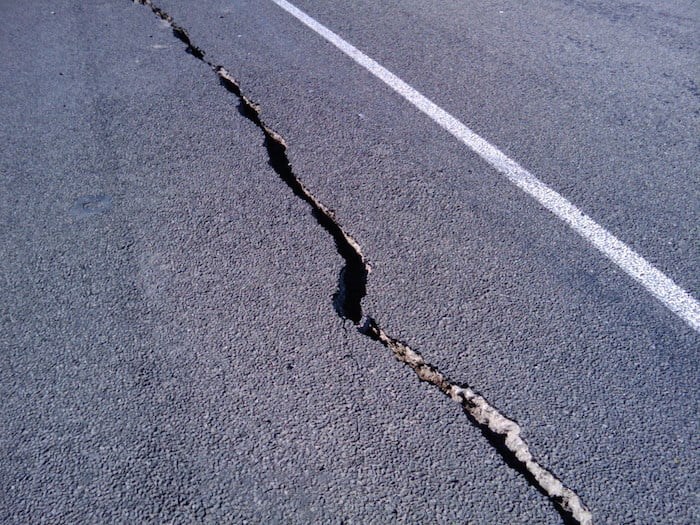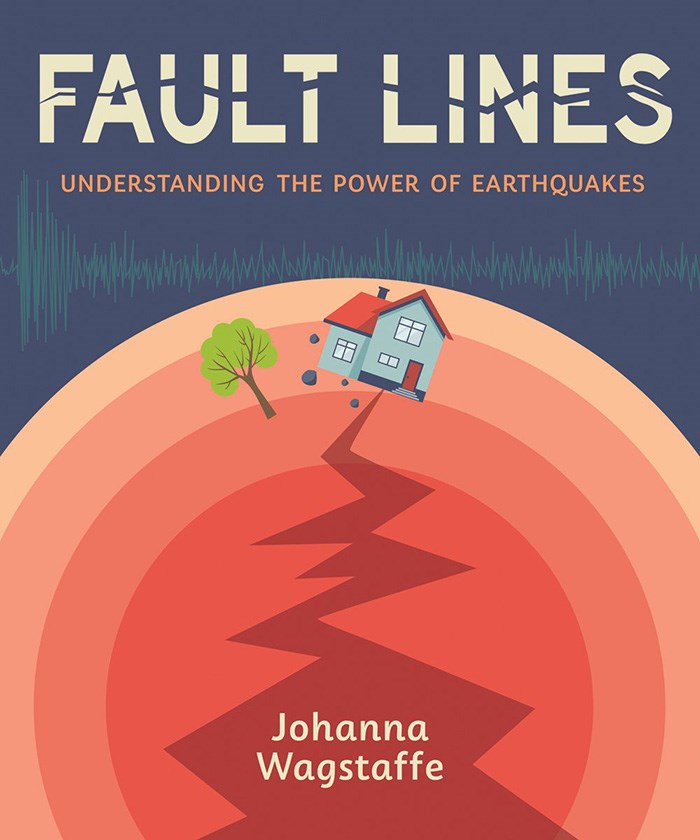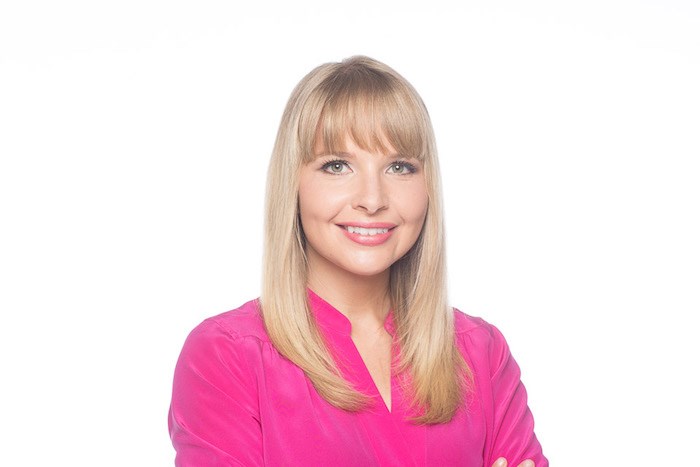Let's face it: We can make all the clever puns we want about earthquakes, but when the "big one" rattles Â鶹´«Ã½Ó³»it will be no laughing matter.
Vancouverites are increasingly becoming more aware of the reality that our region is likely to experience a destructive "" earthquake within our lifetime, but many of us are just not prepared.
 Richard Walker/Flickr
Richard Walker/Flickr
In some Â鶹´«Ã½Ó³»households, it's the kids who are coming home after doing an earthquake drill in school on a day like (October 19, 2017), or after meeting Â鶹´«Ã½Ó³»meteorologist and seismologist Johanna Wagstaffe, and asking their parents if they can make an earthquake kit.
Why earthquake preparedness can start with kids
Wagstaffe, who has just released , says one of her favourite parts of her job is talking to children. Kids "ask the most interesting questions," Wagstaffe tells Â鶹´«Ã½Ó³» via telephone. "They're the ones who are going to make changes."
Of course, earthquakes are scary to experience, think about, and imagine, which is why Wagstaffe says she takes particular care with her words so that she doesn't use language that might instill fear.

"They're more curious than afraid," though, she says of the kids she speaks with, adding that children respond well to hearing other children's experiences of earthquake survival.
"They don't have to be afraid if they are prepared," says Wagstaffe.
Being prepared is vital, and Wagstaffe stresses the importance of households, communities, and workplaces coming together to assemble survival kits and make plans.
The reality is, acknowledges Wagstaffe, the kind of seismic event we can expect to experience in Â鶹´«Ã½Ó³»will not just inconvenience us for a few hours or couple of days, but actually render us without water, electricity, and access to services for several days, if not longer.
"A moderate sized earthquake will completely debilitate Vancouver."
"A moderate sized earthquake will completely debilitate Vancouver," says Wagstaffe. "We have to try to think of what we need to live for weeks, maybe months on end."
That means your household and workplace will need to have several plans for mobilizing and accessing survival goods. Wagstaffe suggests that families can involve the children in planning, and turn it into an activity, challenging each other to think of all the possible scenarios for what to do when each family member might be in different places because of work, school, or other activities, and how they'll reconvene.
Having a well-stocked earthquake kit, and knowing where it's stored is also essential, notes Wagstaffe. Take into consideration your every day needs, from medication and contact lenses to feminine hygiene products and food and water. Don't forget your family pets; if you have four-legged friends to feed, be sure you have a plan in mind for getting access to their food in the event of an earthquake.
It's important to check your earthquake kit supplies regularly. Wagstaffe says an annual date like the Great B.C. Shakeout is a perfect calendar marker for making sure your food isn't expired and your water is fresh. Personally, Wagstaffe says she tends to check in on her supplies whenever news hits that another part of the world has suffered a major quake.
Because we do tend to hear instantly about earthquakes around the globe, Vancouverites are starting to come to grips with the reality of the shakers not only being prevalent, but also the kind of widespread devastation they can cause to a region.
 Johanna Wagstaffe
Johanna Wagstaffe
Life can change in a moment
"Thanks to social media we're able to see in the moments after an earthquake [...] how a life can change in a moment," observes Wagstaffe, adding that for their part, scientists have also become more fluent communicators following a major quake, and are able to speak immediately about what's happening, and risks.
Additionally, those tasked with managing Vancouver's safety and infrastructure can turn to places like Christchurch, New Zealand--a city that has a lot of similarities to Vancouver--to help us understand how an earthquake would affect our city, and plan accordingly.
Being more aware about earthquakes around the globe helps, but Wagstaffe posits that because we haven't been through a major quake in our lifetimes in Vancouver, we feel a bit removed from the issue. There are also a lot of people who have opinions about quake scenarios, or outdated notions of what to do, and being informed is a key part of being prepared--that's why websites like The Great B.C. Shakeout can be a great starting point, or what Wagstaffe hails as a "one stop shop" for vital information about survival.
That's also why working with kids to educate them, and wrangle their intrinsic curiosity about the whys and hows of the science of quakes, is going a long way to making us all more earthquake ready.
Building our earthquake survival "muscle memory."
And the more we talk about it, the more we regularly take part in "stop, drop, and cover" drills, the more we work with each other to make earthquake kits and plans, the more our earthquake survival actions become "muscle memory," says Wagstaffe.
Wagstaffe is optimistic that there has been a lot of positive movement towards making earthquake safety and preparedness more a part of Vancouver's culture like it is in other regions or countries.
Some of the most encouraging changes have come from smaller community groups, relays Wagstaffe, who points to neighbourhoods in Â鶹´«Ã½Ó³»like Dunbar where they've worked together to create a kit and a plan.
"Community is going to be the most important thing [...] after an earthquake."
"Community is going to be the most important thing, after family, after an earthquake," says Wagstaffe. With first responders unable to get to you, you'll likely be gathering in open fields, working to determine who has needed skills, and what needs to get done. Setting as much as that up as possible now, whether its within a group as small as your condo or townhouse strata, or your entire neighbourhood, can go a long way in helping us survive following "the big one."
And there will be a big one.
"It can happen at any moment," says Wagstaffe.


